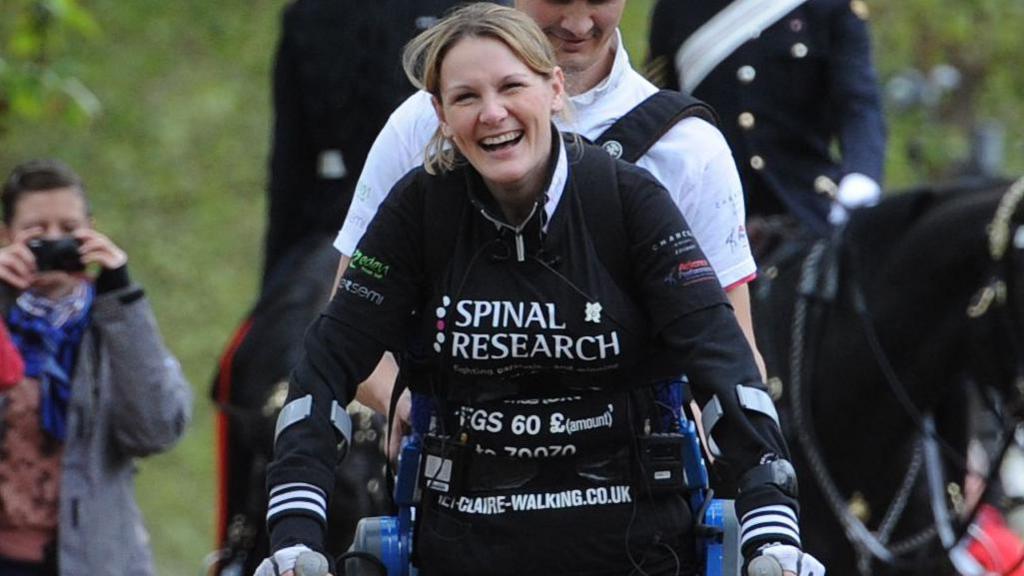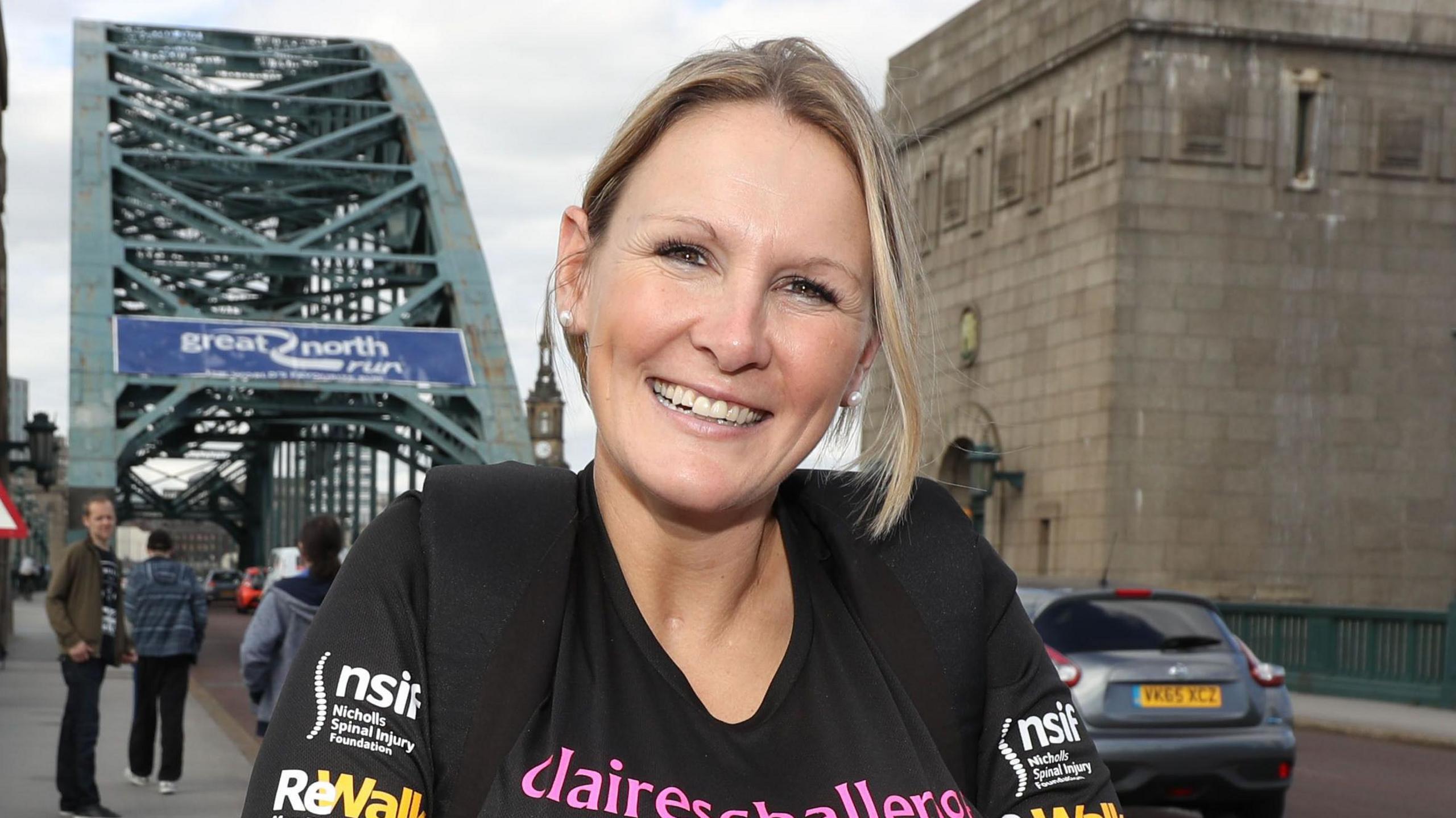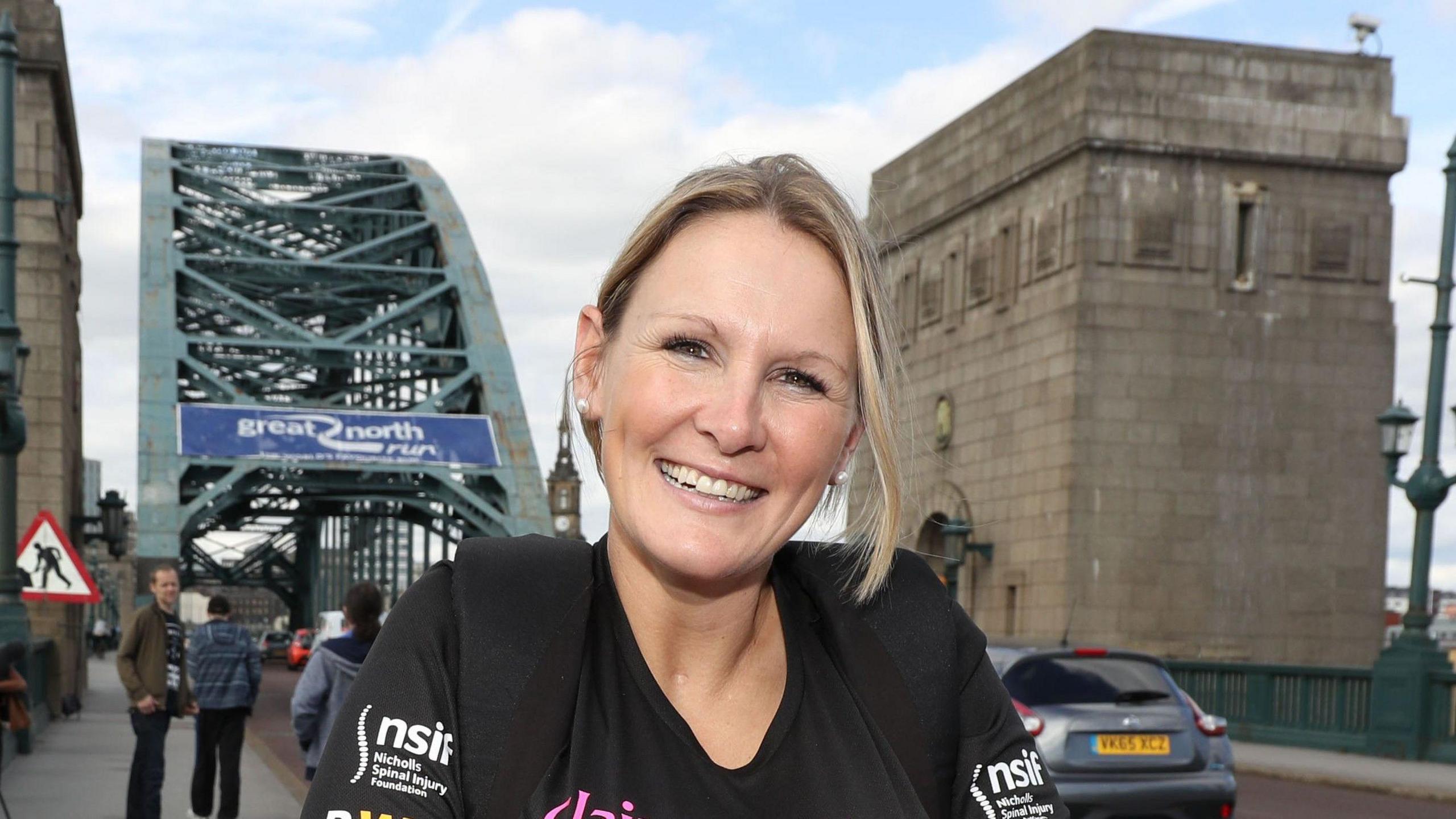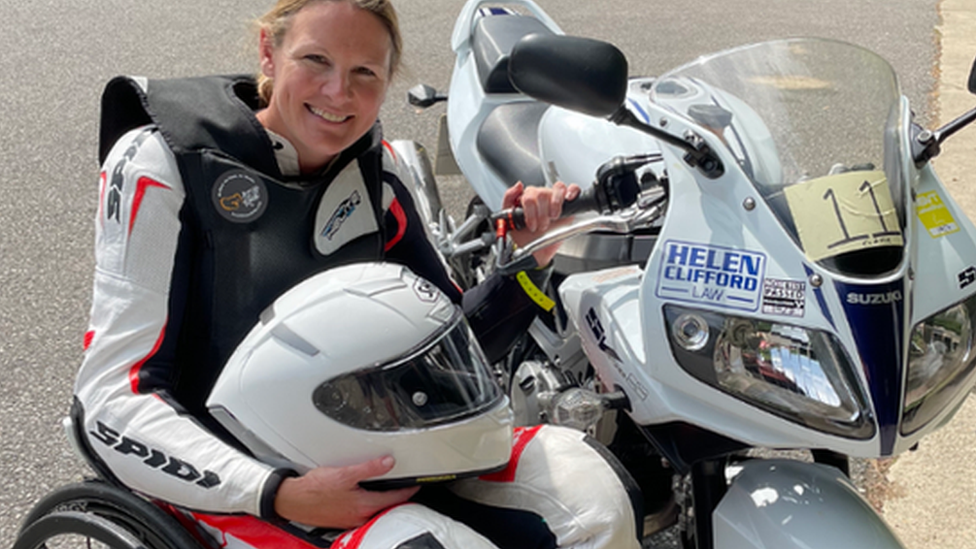Marathon suit campaigner 'was a dreamer'

Claire Lomas became paralysed after damaging her spinal cord in a riding accident in 2007
- Published
The firm behind a charity campaigner's "bionic" suit that allowed her to walk after she was paralysed has said she was a "remarkable" woman.
Claire Lomas - who raised nearly £1m for charity - died following an accident in Jordan in the Middle East on 22 August, her family said in a statement.
The 44-year-old was told she would never walk again after a riding accident in 2007 but later went on to break records - including walking the London Marathon - in a suit called the ReWalk Personal Exoskeleton.
Larry Jasinksi, the chief executive of Lifeward - previously known as ReWalk Robotics - told the BBC Ms Lomas was a "pioneer" and made a "huge difference" in the industry.
Ms Lomas - who lived in Melton Mowbray in Leicestershire - was one of the first people to buy a ReWalk suit, originally designed by an Israeli engineer who became paralysed.
The suit is made of braces to support the legs, motors to help rotate joints and sensors which help the user control movement, effectively telling it when they want to move more - and how far or fast.

Lifeward chief executive Larry Jasinski said Ms Lomas "didn't let paralysis get in the way" of her dreams
At the time Ms Lomas bought the suit, it had been "fully tested" for its intended purpose, Mr Jasinksi said.
"But we never envisioned people doing marathons which is about the first thing she did just a few months later. So she really tested it," he added.
Ms Lomas completed the 2012 London Marathon in the suit, raising money for the Spinal Research charity - of which she became a well-known supporter.
She later took part in the Great North Run in 2016 and became known as the "bionic woman".
Ms Lomas helped to develop the suit with "a few elements of the device changed with her input" making it better for other users, Mr Jasinksi told the BBC.
"She affected the whole industry," he added.
Mr Jasinksi said the campaigner and motivational speaker helped other paralysed people "get some grasp of what was possible".
"She went through a devastating period and emerged from that as a person who wasn't afraid of anything," he said.
Ms Lomas became known as a champion of paralysed people, according to the Nicholls Spinal Injury Foundation, and was praised by many for her positivity.

Ms Lomas used the ReWalk suit during her rehabilitation to learn to walk again before taking on various challenges
Numerous organisations have shared tributes to Ms Lomas following the news of her death.
Mr Jasinski said: "On a personal level she had this very direct honesty about her injury and how she's learned to be happy and what she had to go through and her ability to explain that to us, to our engineers and more importantly, to the world at large, was just remarkable.
"I would say she was a dreamer. She had dreams - she followed them, she didn't let paralysis get in her way."
The Melton Times, which shared the news of Ms Lomas' death on Friday, said it had been asked to "advise other media outlets not to contact them until further notice".
The Foreign Office said it had supported the family of a woman who died in Jordan.
Follow BBC Leicester on Facebook, external, on X, external, or on Instagram, external. Send your story ideas to eastmidsnews@bbc.co.uk, external or via WhatsApp, external on 0808 100 2210.
Related topics
- Published31 August 2024

- Published11 May 2023

- Published14 May 2013
- Published8 May 2012
- Published16 February 2012